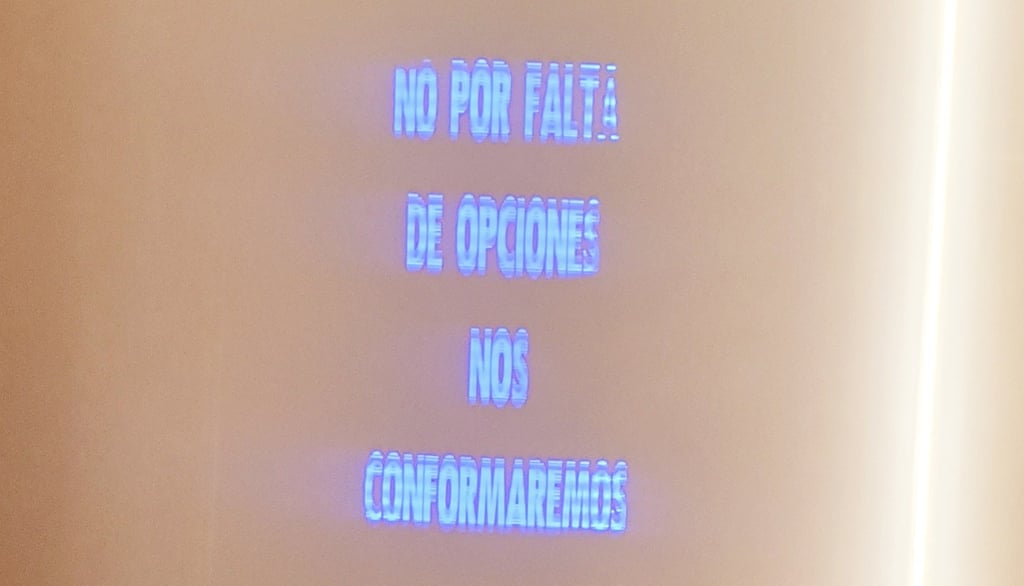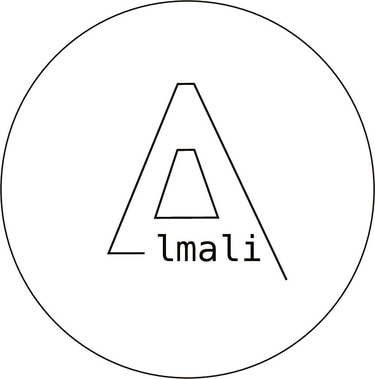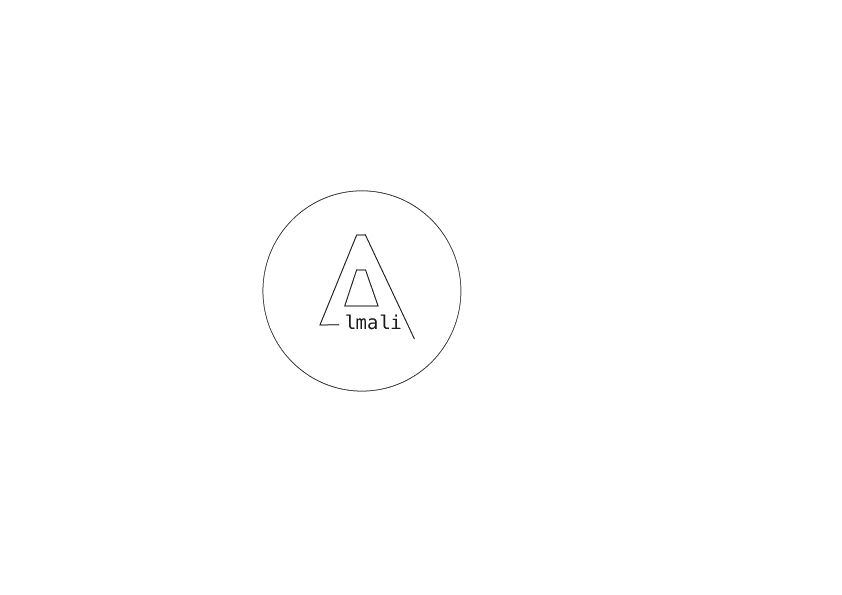It will not be out of a lack of choice that we will settle. - So, then… just why would we?
Why is settling so hard? You do not only choose in favour of one thing but you miss out on so many others… don’t you?
11/17/20249 min read


A few years back, I was choosing a bday gift for a friend of mine. - A teapot from Villeroy & Boch and with it, some green tea. The tea pot cost 10 times the amount the tea would. It took me 2 minutes to buy. I was very happy with my choice.
The tea had me close to desperation. Roughly a thousand different types of green tea stared at me in the gourmet section. I eventually went for the prettiest packaging. It took me 20 minutes. As a non-green tea aficionada, I was rather doubtful about my choice. What about the 999 teas I was missing out on? Would my friend have preferred those? Would they have tasted better?
In today’s world, we have endless choices, from the type of green tea to our partner and the direction of our careers. Having so many options can be empowering, but it can also create what psychologists call choice overload. Choice is in fact according to history's most read book ever the end of bliss and the beginning of all human suffering, as this overload can lead to anxiety, indecision, and even regret. Our abundance of options can sometimes make us feel trapped rather than liberated.
The ability to choose, to truly commit has become a rare good when there is always something more to chase. Research shows that having too many options can hinder our satisfaction and make us question our decisions. So, what if settling on a choice, instead of endlessly seeking perfection, is the secret to a happier, more fulfilled life?
But just what is it that will make us settle? How could you possibly choose in the first place? What criteria to apply? ICould settling for something, someone actually hold the key to happiness and prosperity? It certainly did the moment I set my mind on a tea.
Why Settle?
We often assume that settling is the result of limited options — that we “settle for less” because we have no better choice. But in reality, many of us are choosing to settle because we’re tired of the constant pursuit for “more.” We’re not forced into contentment; we’re seeking it. The deeper reason for settling is often our desire for satisfaction and inner peace over the anxiety that comes from continual searching. Settling isn’t about giving up; it’s about choosing a life where we can truly flourish within the choices we’ve made.
What Makes Us Settle?
The desire to settle often stems from a few key motivations:
1. Pursue Inner Peace: When we settle, we’re intentionally choosing peace over the stress that comes from keeping our options open. We realize that the constant search for “the best” can erode our ability to be present and grateful for what we already have.
2. Develop Connection and Stability: Settling allows us to build meaningful connections, routines, and stability. When we’re constantly changing our minds, we’re less likely to experience the deeper joys of commitment, whether in relationships, work, or personal goals.
3. A Shift in Values Over Time: As we grow, our values and priorities often change. The things we once thought we “had to have” may lose their importance, and we might find joy in the simpler, more grounded things in life. Never miss a moment is no longer about chasing fleeting instants of joy, it rather turns into living the moment as it is and cherishing it for what it is.
4. A Desire to Grow Within Boundaries: Boundaries are essential to protect our emotional and mental well-being, ensuring we maintain healthy relationships with ourselves and others. They define limits that preserve our energy, values, and sense of self-respect.
When we settle, we’re free to grow within the framework of our choice. Instead of constantly looking outward, we’re encouraged to look inward, discovering new aspects of our choice and ourselves along the way.
The Neuroscience of Choice and Happiness
When we’re faced with multiple choices, the brain engages in a complex balancing act. The prefrontal cortex, the brain’s decision-making hub, is bombarded with stimuli and potential outcomes. This influx of options can trigger the amygdala, the brain’s emotional center, often causing stress and “analysis paralysis.” The more we try to optimize our choices, the more we risk activating this stress response. We basically fry our brain.
Interestingly, neuroscience shows that satisfaction isn’t just about choosing the “perfect” option; it’s about committing to a choice. When we commit, our brain releases dopamine, a feel-good neurotransmitter that rewards our decision and helps us feel content. Choosing to settle and fully embrace a choice activates our brain’s pleasure pathways, reinforcing a sense of well-being and satisfaction.
I talk a lot about happiness being a choice. It literally is. Sometimes there are no great choices. Still gotta make one and get on with it. It could be waking away all together. The next cross road will come. Sometimes it's a toughie but once you have made your choice, you will be all the better for it.
7 Practical Tips to Settle and Find Happiness with Your Choices
Wanna try ending the chase and settling, not for the best, but the best possible option for YOU? Here are some practical steps to get there. Always one at a time.
1. Limit Your Choices - Embrace the Power of Three Try setting a limit for yourself, such as the “Rule of Three.” For each decision, narrow down your options to just three. This prevents overwhelm and allows you to focus on each option more thoughtfully. By limiting your choices, you’re more likely to feel content, knowing you’ve considered but not overanalyzed the best possibilities. The human brain finds 3 important because it simplifies information processing. Patterns of three are easy to recognize, memorable, and create a sense of completeness (beginning, middle, end). This "rule of three" resonates in communication, storytelling, and decision-making, aligning with our brain's preference for simplicity and structure.
2. Practice “Satisficing” Instead of “Maximizing” Rather than looking for the “perfect” choice Rather than looking for the “perfect” choice, try satisficing—selecting an option that meets your needs well enough. Studies show that satisficers are often happier with their choices because they avoid the endless search for perfection. This shift in perspective can reduce stress and help you settle on decisions faster. Good enough is a great base for happiness.
3. Reframe Settling as Commitment When you decide to settle, reframe it as committing rather than compromising. Neuroscience shows that when we commit to a choice, the brain begins to build new neural pathways that reinforce our decision, making us feel more positive about it over time. Remind yourself that commitment to a choice can open new avenues for growth, instead of constantly seeking “better” options. It will inevitably mean that you become better at living the choice you have made.
4. Build a Gratitude Practice Around Your Choices Gratitude has a powerful effect on the brain, boosting dopamine and serotonin levels, which are linked to feelings of happiness. Start a habit of writing down things you’re grateful for about your choices—why you’re thankful for your career, your relationships, or even the small decisions you make each day. Over time, this practice can help you find joy in the present and reduce feelings of FOMO (fear of missing out). I say thank you every morning and every evening for all the amazing things life had given me. I also embrace the challenges and look for the lesson to be learned, choosing to convey adversity into opportunity. Twice a day.
5. Set Clear Values to Guide Your Choices When your choices align with your core values, you’re more likely to feel fulfilled. Take time to define your top five values, such as growth, connection, or security, and use these as a compass for your decisions. Neuroscience suggests that alignment with personal values activates the brain’s reward system, bringing a sense of purpose and satisfaction that makes it easier to settle on your choices.
6. Turn Off Comparisons It's not about becoming better than someone else, it's about being a better version of who you were yesterday.
In a world of social media, comparing our choices to others’ can quickly lead to dissatisfaction. Practicing “social media detoxes” or actively choosing not to compare helps train the brain to focus on your unique path, which can lead to more peace and satisfaction. Studies show that comparing ourselves to others frequently activates the brain’s stress centers, but reducing comparisons can help you stay content and focused on your decisions.
7. Practice Mindfulness to Reduce Regret and Strengthen Decision Confidence Mindfulness is an evidence-based way to reduce rumination and enhance decision satisfaction. When you feel yourself second-guessing or regretting a choice, take a few minutes to breathe and ground yourself in the present. BREATH!
This helps your brain become more adaptable and less prone to stress. With mindfulness, the prefrontal cortex—the part of your brain responsible for making thoughtful decisions—grows stronger, helping you to feel more confident in your choices.
Breathing exercise, fast reset: breathe in counting to six and out counting to 6. Always through your nose. Repeat 6 times. You will guide that amazing machine in its black box back to safety, tricking your brain with your breath into thinking that all is fine.
Final Thoughts: Settling Isn’t a Compromise, It’s a Commitment to Your Own Happiness
In a world full of options, settling can feel like a foreign concept. Yet, neuroscience supports the notion that fewer choices and a commitment to contentment can foster greater happiness and mental well-being. Settling is not about compromising your dreams but rather about choosing to live fully within the choices you make, living and further developing your dreams, embracing life’s richness without being paralyzed by endless options. When we settle in a way that aligns with our values, we find the freedom to enjoy life as it is, instead of how it could be.
Settling often gets a bad reputation, seen as a step down or a sign of giving up. But in reality, it’s an intentional choice to value contentment over perfection, to find joy in what is rather than endlessly searching for what could be. Settling is about freeing yourself from the exhausting pursuit of “better” and choosing to embrace your choices fully.
Settling does not mean giving up on growth or success — it means choosing a focused path that aligns with your values and ambitions. By doing so, individuals and businesses alike can thrive, leveraging their resources and energy toward meaningful goals. Through intentional practices like satisficing, gratitude, and mindfulness, you can settle into a happier, more fulfilled version of yourself or a business that stands out, not by constantly changing, but by consistently delivering what matters most.
I get that it’s hard. To choose unfortunately also means to exclude. To choose comes at a cost. And that is what brings us such tremendous pain when we decide to settle. All those things we miss out on… What we often fail to see is that by missing out on those other things, we gain, we deepen connections, we grow. Our brains are built to recognise danger. And that is a good thing to protect us. To become truly happy, we need to see that there is no danger, shift focus, be grateful for the gain that we get from leaving the chase and finally settling - for our own happiness.
Are you ready to choose to settle into a happier, more fulfilled version of yourself?
Add-On - Settling in Business: The Power of Focused Choices
The principle of settling, or choosing to commit to a particular path instead of constantly searching for something "better," is just as relevant in business as it is in personal life. For businesses, especially in today’s fast-paced and competitive world, settling on focused choices can lead to greater success, brand loyalty, and team satisfaction.
In business, leaders often feel pressure to pursue every opportunity, expand into every market, and constantly reinvent themselves to keep up with trends. However, businesses that settle on a focused path can leverage their resources, brand, and talent more effectively. Here are a few ways that settling can benefit a business:
1. Enhancing Brand Identity Through Consistency When a business commits to a focused identity and market, it becomes easier to develop a brand that consumers can trust. This does not mean a business cannot evolve, but rather that it remains grounded in a clear vision and value proposition. Brands like Apple, Patagonia, and IKEA thrive because they are committed to core values and a consistent identity, building loyalty by “settling” into what they stand for and whom they serve. This is the guiding framework in which every step is taken, every activity developed, every product launched. In fact, research has shown that brands activate the same brain regions (reward system), as do religions. Amongst the things that unite them is a constant in the language spoken, a set of values followed and a mission in which to stand united. It is a chosen path with no intention to stray from and to always return to.
2. Encouraging Innovation Within a Framework Settling on a specific niche or core service can give businesses the creative freedom to innovate within that framework, deepening their expertise and offering unique value. For instance, a restaurant that commits to farm-to-table dining can experiment with seasonal ingredients, unique pairings, and chef collaborations — all within a settled concept that resonates with its customers.
3. Avoiding Burnout and Building Team Loyalty Choice overload doesn’t only apply to consumers; employees also benefit when businesses focus on clear objectives and manageable initiatives. When a company constantly pivots or changes direction, employees may experience burnout or a lack of loyalty. Settling on clear priorities and values helps teams feel more secure, engaged, and motivated. We all like consistency (to different extents, of course).
4. Financial Efficiency and Resource Management Settling streamlines! Defining core products or services allows businesses to allocate resources wisely, reducing costs associated with constant change or expansion. By focusing on what they do best, companies can optimise operations, increase efficiency, and ultimately achieve better financial outcomes. Many startups, for instance, fail because they spread themselves too thin, attempting to offer everything to everyone rather than refining a focused, competitive edge.
Talk to us to take your business to the next step. We would be delighted to help you find clarity.

